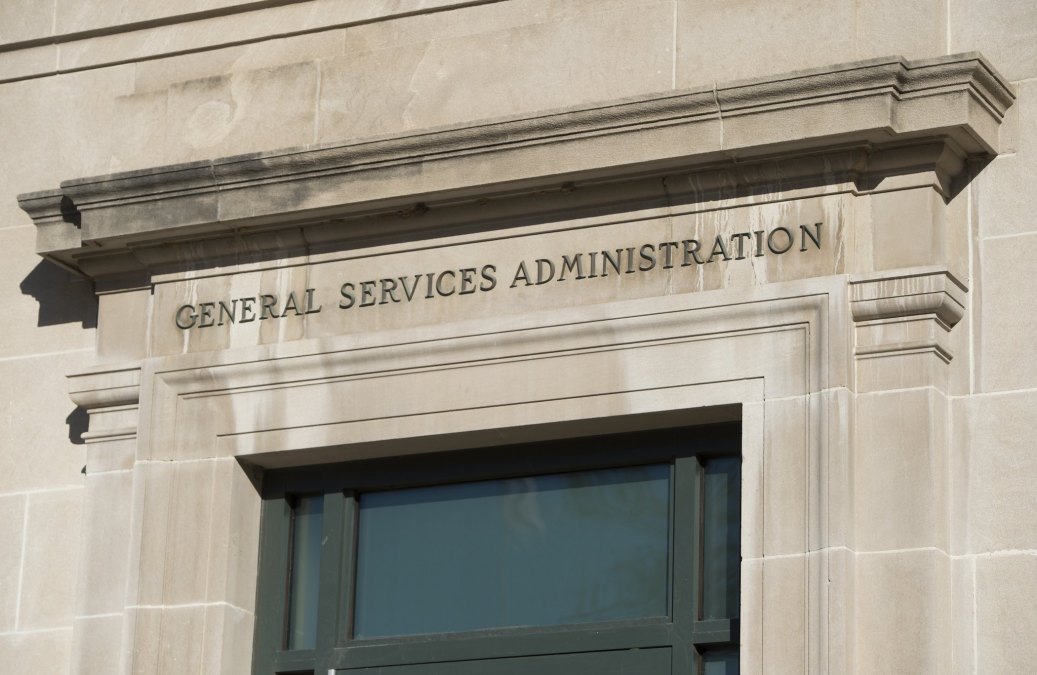More mature 10x program selects 22 new projects

The General Services Administration’s 10x technology investment program will fund 22 Phase 1 projects based on new priorities set last year, the agency announced Tuesday.
Housed within the Technology Transformation Services, 10x selected the projects from a pool of 250 internal submissions to fit three themes: rebuilding public trust, environmental protection and promoting equity.
The announcement comes as 10x nears completion of two Phase 4, public-facing technologies.
“We’re moving from shipping prototypes to shipping live products,” Will Cahoe, project coordinator for 10x, told FedScoop. “And I think this is a testament to how we’ve matured as a program over the last couple of years.”
The 10x program was developed to “crowdsource ideas from federal employees and turn them into real products that improve the public’s experience with the federal government.”
Phase 1 in the 10x process is the “investigation” phase and consists of a two-week sprint in which project teams determine if their ideas are worthwhile by considering legal and regulatory hurdles, consulting experts in the space, and ensuring similar government projects aren’t already ongoing.
A public trust project being evaluated currently would aggregate all agency Freedom of Information Act responses in one place.
Environmental projects address climate change, national parks and conservation issues, with one currently looking to ameliorate sewage spills into public water resources. That project also crosses into the equity space because it would identify underserved communities that are affected.
The equity theme aligns with the Biden administration’s priority of racial equity in the president’s American Rescue Plan and asks who’s left behind by government services. Translation products, as well as those supporting everyone from rural and tribal populations to former inmates, fall in this category.
Phase 2 is a six- to eight-week “discovery” phase, where project teams decide if there’s a solution to the problem identified in Phase 1. Some remain undecided, but 10x has nine definite Phase 2 projects — one of which is a COVID-19-inspired effort to provide contact tracing for GSA buildings in the event of another public health crisis.
In Phase 3 “development” begins with engineers being tasked to build a minimum viable product, potential partner agencies being identified and an end goal of solving one problem for one active customer. 10x has four Phase 3 projects, the latest of which kicked off Monday.
The Combating Bias in Artificial Intelligence and Machine Learning Implementation project is ahead of schedule in that the product is already live. A suite of digital tools helps data and program professionals identify different types of bias — possibly racial or gender-based — within datasets that will ultimately power AI pipelines.
10x is collaborating with the Census Bureau on the project.
“My understanding is that the Census Bureau is going to be on the forefront of using this new technology because they’re really a data agency,” Cahoe said. “They have so much data, and a lot of the census open data is what’s going to be used to power these kinds of AI implementations across government.”
Phase 4 attempts to “scale” solutions to as many users as possible and identify alternative funding to keep products sustainable when the 10x seed money dries up.
Of 10x’s two Phase 4 projects, Site Scanner is just ending.
There are a lot of mandates for .gov websites, and the Site Scanner platform delivers customizable scans keeping agency web managers abreast of accessibility, uptime and downtime, related security certificates used, and required data files listed. The product is live, additional scans continue to be added and TTS will manage the platform within its Digital Analytics Program portfolio.
The other Phase 4 project is DevOps for Privacy Offices, which created a live dashboard empowering such offices to respond to security issues with people’s personally identifiable information (PII). The dashboard, which resides within TTS’s Identity Management portfolio, could eventually help implement the Creating Advanced Streamlined Electronic Services for Constituents (CASES) Act and allow people to see what agency systems hold what PII of theirs.
10x’s phased approach to innovation investment mitigates risk by increasing the funding and time devoted to projects as they advance, which only a third do from phase to phase.
“We do not view closing down projects as failures,” Cahoe said. “We view it as a success because one of the great value propositions of 10x is that we can save money and prevent duplication.”
The funding for 10x comes out of the Federal Citizen Services Fund (FCSF), just like other programs within the TTS Solutions office: the Federal Risk and Authorization Management Program, USA.gov, U.S. Web Design System, and Data.gov. While the FCSF received $150 million in the American Rescue Plan Act, 10x won’t see a funding increase because it’s funded specifically out of a smaller pot called the Digital Services Fund.
That dollar cap means 10x is at its hiring limit currently, but it did launch a new website Tuesday detailing its work. And the program could always receive more funding during the budget process, as consistent as that funding has been throughout 10x’s life.
“Are we going to be getting a bump next year? I couldn’t tell you,” said Nico Papafil, 10x director. “I hope we do.”






